Yes, I’m back, dipping my toes cautiously into the social media waters, gauging my mental state. I have a lot going on professionally right now, and I need to write about it, to boost the signal (as the market phrase would have it), to shout it from the virtual rooftops.
And so, I’m venturing back out into the digital world. But you, who have put up with me disappearing now and again, deserve a bit of an explanation for my sudden withdrawal back in early July.
The short version is this: Our older daughter, who has been battling cancer since March 2021, had an unexpected setback. “Unexpected” as in out of the blue. All (or at least almost all) the indicators had been looking pretty good, pointing toward slow but measurable progress. And then one scan — a formality, dotting the “i”s and crossing the “t”s — came back with unambiguously bad results. Bad.
We were devastated, and I needed time. As it happened, at that point in the summer, Nancy and I were preparing for a long stretch of travel, and I would have needed to write several weeks worth of blog posts in advance and schedule them for our time away. I couldn’t do it. I couldn’t bring myself to write a bunch of happy, chatty posts when I was shattered.
Hence, my pull-back.
Our daughter is back in chemotherapy. We’ll find out before too long whether it is working as we hope or if her doctors will need to try something else. In the meantime, she is doing remarkably well. The side-effects of this particular drug are, mercifully, not too terrible. She is working as usual on non-treatment days. She is seeing friends, going to parties, having fun. She is a wonder. A force of nature. Her courage and strength and resilience and determination humble me. I am embarrassed by my own fragility. But I’m a parent and my kid is sick and I can’t do a damn thing to make it all better. Isn’t that what dads are supposed to do? Make it all better? I feel helpless.
But given all she is doing for herself, how can I do any less than step back into the world, be a professional, and live my life as best I can?
So . . . .
I am currently working on my new contemporary Celtic urban fantasy. I have recently revised the first book, The Fugitive Stone, and am now about to submit for editorial feedback the second book, The Demon Cauldron. The third book, The Lost Sword, is about two-thirds written. I’ll be resuming work on it soon.
The Kickstarter for the new set of Zombies Need Brains anthologies is live and it needs your support! We have four anthologies in this year’s set, including Dragonesque, an anthology of stories from the dragon’s point of view, for which I will be writing a story, and Artifice and Craft, an anthology of stories about magical or supernatural works of art that I am editing with my wonderful friend, Edmund R. Schubert. We are halfway to our funding goal, but that leaves us with some fundraising distance to travel in the three weeks we have left. Please, please, please help us out.
I am also continuing to edit on a freelance basis, as I have been for about a year now.
And I am preparing for a couple of upcoming professional events. I will be a guest at this year’s DragonCon, my first appearance at the con since 2018. I can’t wait to get back to our genre’s version of Mardi Gras — it’s always a highlight of my professional year, and it’s been too long. DragonCon takes place in Atlanta, the first weekend of September.
And later in September, I will be an instructor at the Hampton Roads Writers Conference, leading workshops on Point of View, Character Development and Character Arc, World Building, and Pacing and Narrative Arc.
Busy times. Difficult times. But I think that’s true for all of us. We all struggle. We all find ways to cope, to overcome, or at least to distract and scrape by.
I mentioned our travel — Nancy and I went to Colorado, where we had a wonderful visit with our younger daughter and her partner. From there, we went to Boise, to see Nancy’s family. And finally, we spent nearly a week in the area around Bozeman, hiking every day, looking at birds and butterflies, the brilliant hues of wildflowers and mountain vistas that stole our breath. Maybe I’ll post a few photos in the weeks to come.
Thank you for your understanding when I needed to step away from social media. Thank you for the warm, welcoming embrace of your friendship as I return. Going forward, I will try to do better.









 My editor at Belle Books is a woman named Debra Dixon, and she is a truly remarkable editor. This first book in the Celtic series is our third novel together, after Radiants and Invasives. In our time together, I have never once felt that her responses to my work were intrusive or unhelpful. With each book it’s been clear to me that her every observation, every criticism, every suggestion, is intended to help me tell my story with the greatest impact and in the most concise and effective prose. A writer can’t ask for more. This doesn’t mean I have agreed with every one of her comments. Now and then, I have felt strongly enough about one point or another to push back. And she’s fine with that. That’s how the editor-writer relationship is supposed to work, and she has always been crystal clear: In the end, my book is my book. But even when we have disagreed we have been clear on our shared goal: To make each book as good as it can be.
My editor at Belle Books is a woman named Debra Dixon, and she is a truly remarkable editor. This first book in the Celtic series is our third novel together, after Radiants and Invasives. In our time together, I have never once felt that her responses to my work were intrusive or unhelpful. With each book it’s been clear to me that her every observation, every criticism, every suggestion, is intended to help me tell my story with the greatest impact and in the most concise and effective prose. A writer can’t ask for more. This doesn’t mean I have agreed with every one of her comments. Now and then, I have felt strongly enough about one point or another to push back. And she’s fine with that. That’s how the editor-writer relationship is supposed to work, and she has always been crystal clear: In the end, my book is my book. But even when we have disagreed we have been clear on our shared goal: To make each book as good as it can be. My struggle right now is simply this: Her feedback on this first book is quite extensive and requires that I rethink some fundamental character issues and cut or change significantly several key early scenes. And she’s right about all this stuff. No doubt. This first book has been through several revisions already, and the second half of the book — really the last two-thirds of the book — just sings. I love it. She loves it. The first third is where the problems lie. To be honest, the first hundred (manuscript) pages of this book have always given me the most trouble. I wrote the initial iteration of the book more than a decade ago, and in some ways those early chapters still reflect too much the time in which they were written. They feel dated.
My struggle right now is simply this: Her feedback on this first book is quite extensive and requires that I rethink some fundamental character issues and cut or change significantly several key early scenes. And she’s right about all this stuff. No doubt. This first book has been through several revisions already, and the second half of the book — really the last two-thirds of the book — just sings. I love it. She loves it. The first third is where the problems lie. To be honest, the first hundred (manuscript) pages of this book have always given me the most trouble. I wrote the initial iteration of the book more than a decade ago, and in some ways those early chapters still reflect too much the time in which they were written. They feel dated.
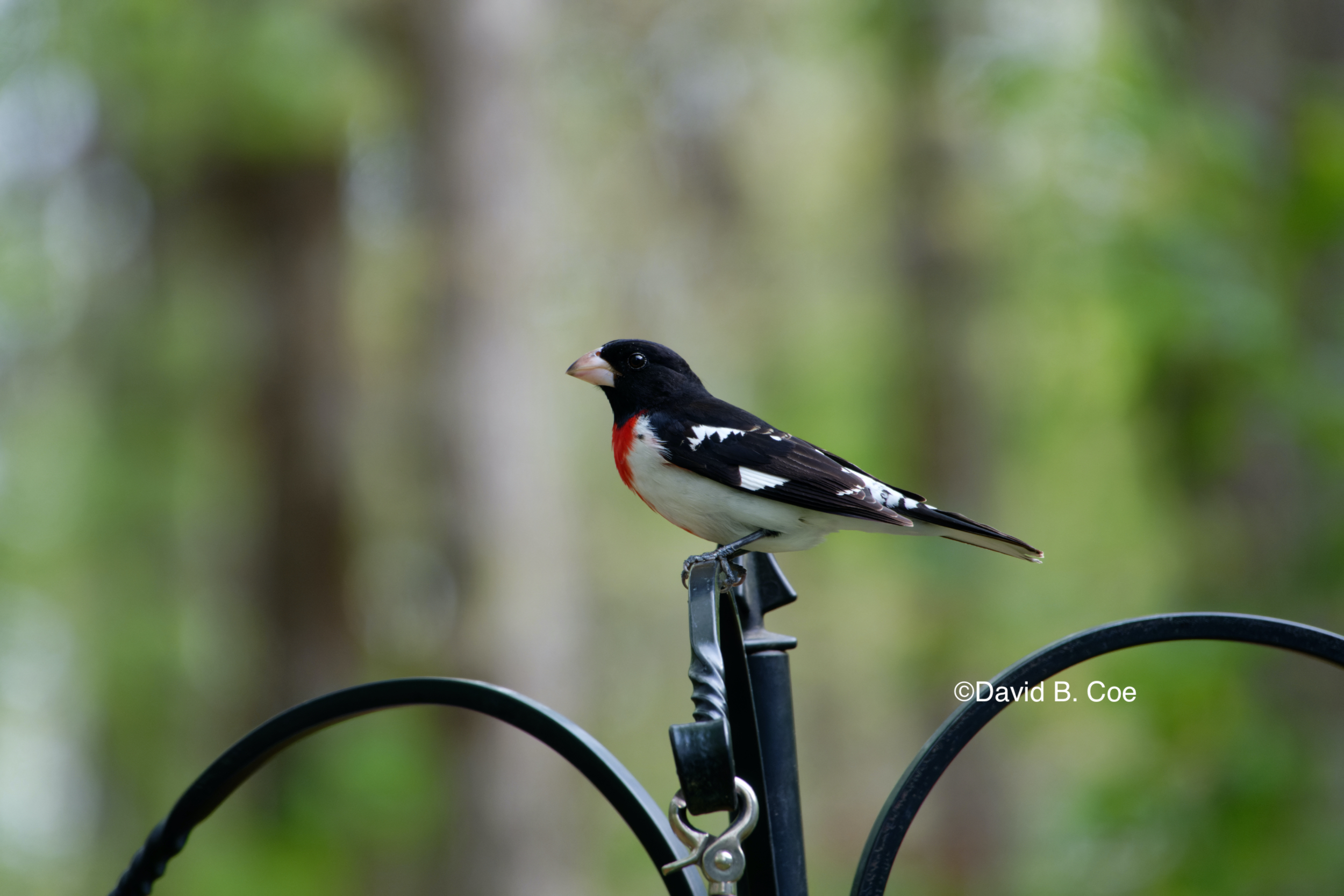


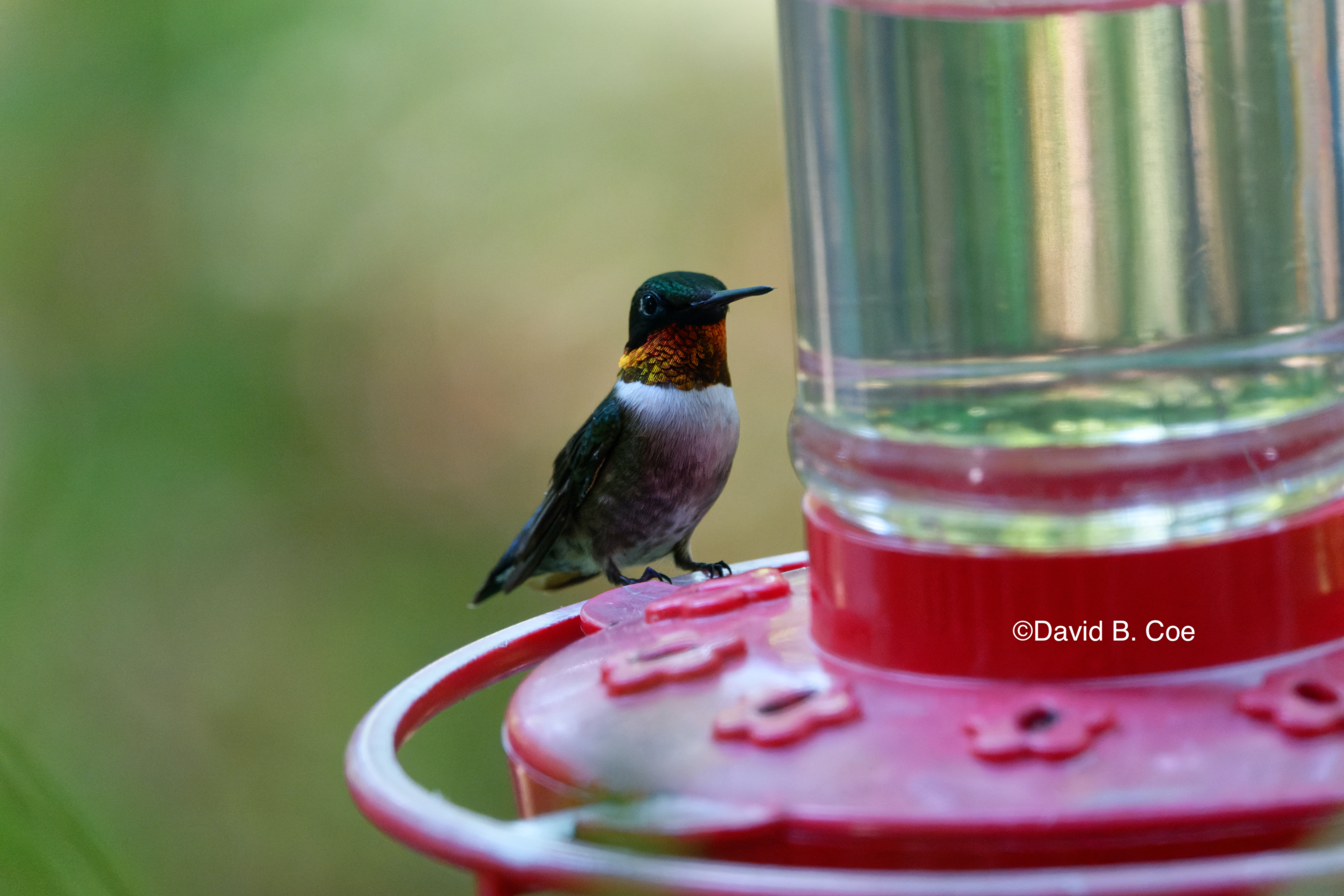

 I have to confess that I don’t remember when I first met Wayne McCalla.
I have to confess that I don’t remember when I first met Wayne McCalla.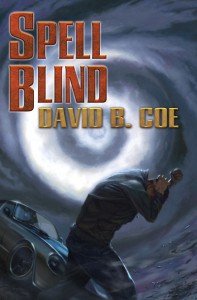 About seven years ago, I received out of the blue, an email from the actor Bronson Pinchot, who is probably best known for playing the role of “Balki” in the sitcom Perfect Strangers. He was, by then, enjoying a successful career as a voice actor, and he was writing to me because he was about to return to the studio to begin recording his reading of the second Justis Fearsson book, His Father’s Eyes. He wanted to know what I had thought of his treatment of the first book in the series, Spell Blind, and if there were things I wanted him to do differently with the second book.
About seven years ago, I received out of the blue, an email from the actor Bronson Pinchot, who is probably best known for playing the role of “Balki” in the sitcom Perfect Strangers. He was, by then, enjoying a successful career as a voice actor, and he was writing to me because he was about to return to the studio to begin recording his reading of the second Justis Fearsson book, His Father’s Eyes. He wanted to know what I had thought of his treatment of the first book in the series, Spell Blind, and if there were things I wanted him to do differently with the second book.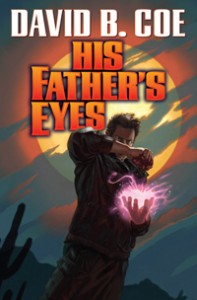 I was thrilled to get the email, and also impressed by the care he was taking with my books. But I wasn’t really able to give him the feedback he was after. “I have heard great things about your performance from friends, as well as from online reviews,” I told him. “I’ve listened to the sample on the Audible site and very much like your take on the character’s voice. The truth is, though, I am incapable of listening to others read my work. It has nothing to do with your performance, or any one else’s, for that matter, and everything to do with hearing the flaws in my own writing, which I find excruciating.”
I was thrilled to get the email, and also impressed by the care he was taking with my books. But I wasn’t really able to give him the feedback he was after. “I have heard great things about your performance from friends, as well as from online reviews,” I told him. “I’ve listened to the sample on the Audible site and very much like your take on the character’s voice. The truth is, though, I am incapable of listening to others read my work. It has nothing to do with your performance, or any one else’s, for that matter, and everything to do with hearing the flaws in my own writing, which I find excruciating.”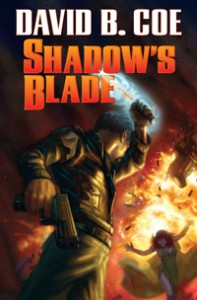 As it happens, I have from Audible the MP3 CD of the third and final book in the original trilogy, Shadow’s Blade. Since I also had in my immediate future two seven-hour drives, I thought I would go ahead and listen to the book. How bad could it be, right? Even if I hated what I heard (to reiterate, I wasn’t worried about Pinchot’s performance, but rather my writing), I could take solace in knowing that I was now seven years and at least eight novels more experienced than I was when I wrote the book.
As it happens, I have from Audible the MP3 CD of the third and final book in the original trilogy, Shadow’s Blade. Since I also had in my immediate future two seven-hour drives, I thought I would go ahead and listen to the book. How bad could it be, right? Even if I hated what I heard (to reiterate, I wasn’t worried about Pinchot’s performance, but rather my writing), I could take solace in knowing that I was now seven years and at least eight novels more experienced than I was when I wrote the book.